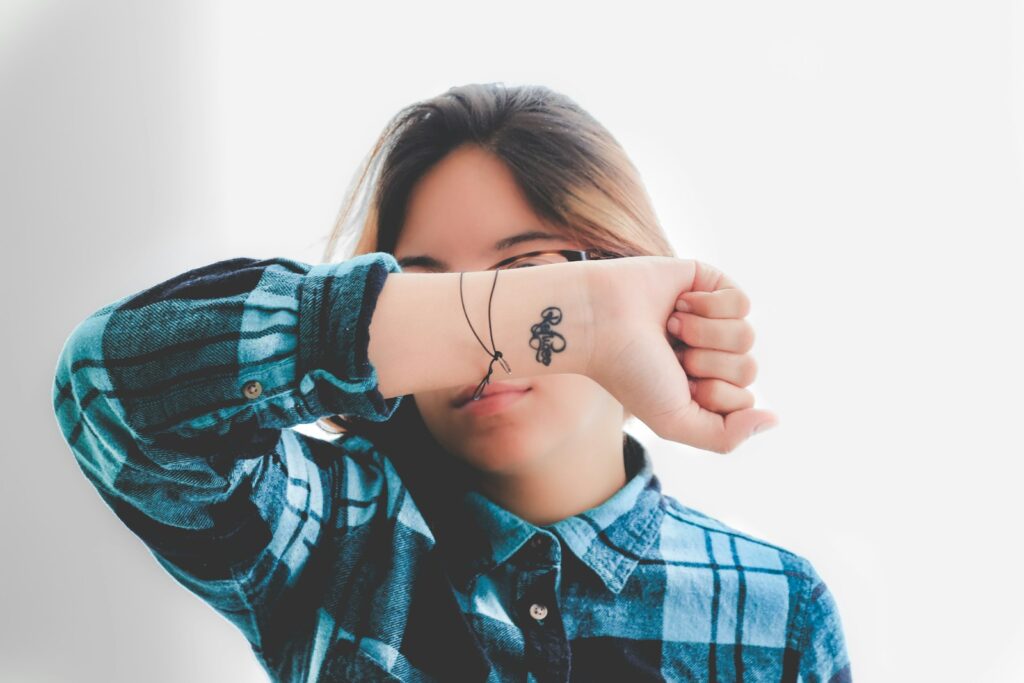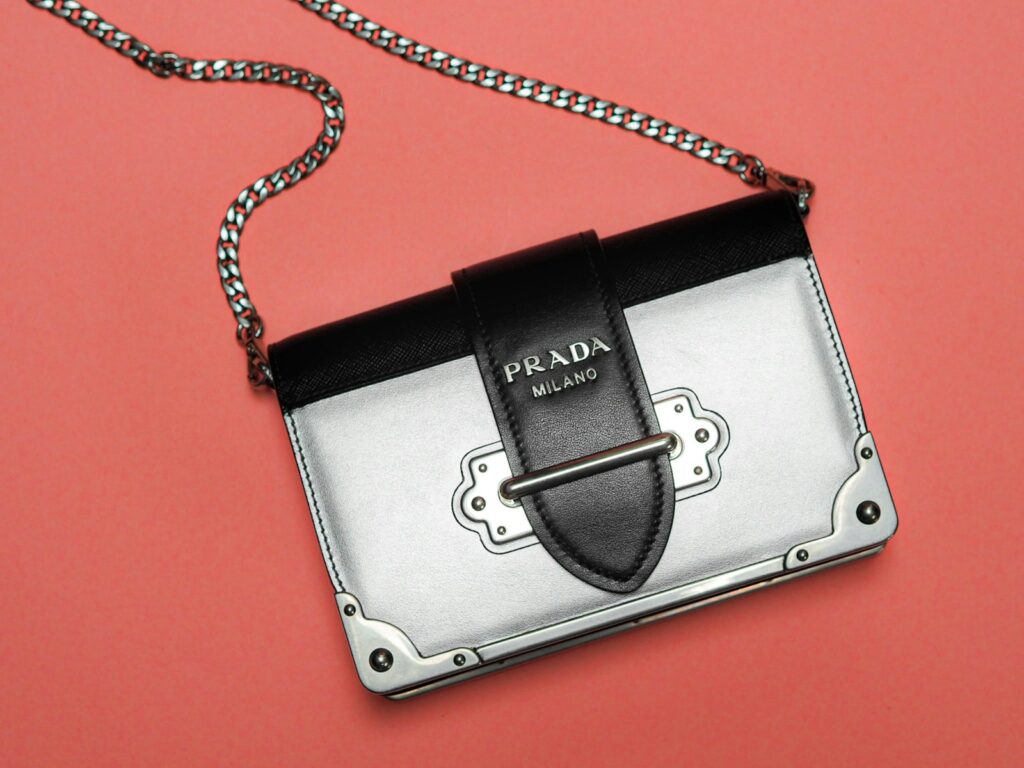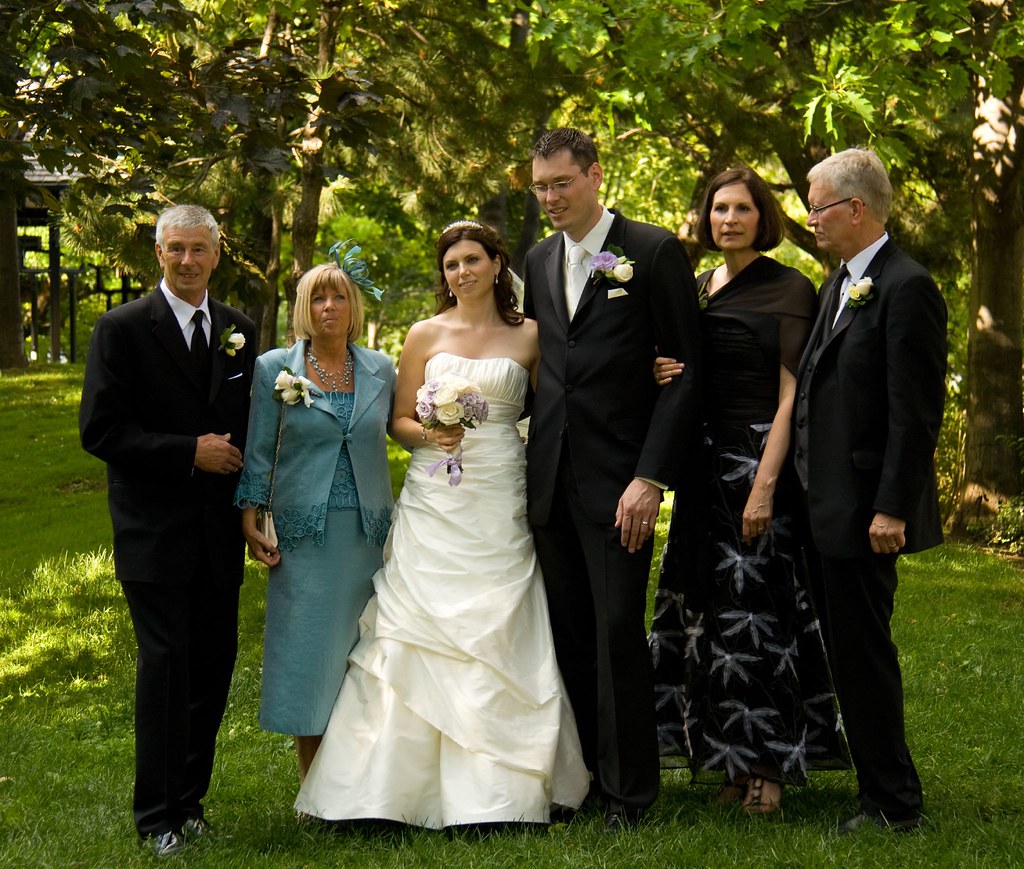
In today’s fast-paced digital era, where social media and instant news dominate, celebrities are constantly in the public eye, with every word, action, and misstep scrutinized like never before. This heightened visibility means that even the smallest errors can quickly escalate into major scandals, forcing stars to issue public apologies or, in some cases, leading to complete public meltdowns. The pressure of maintaining a flawless image is immense, and when things go wrong, the fallout can be spectacular. We’re all captivated by the drama, trying to decode what’s truly authentic and what’s just, well, a performance.
Apologies are inherently awkward, even for us mere mortals, but when you’re famous, these conditions are magnified tenfold. The public has an inherent distrust, because celebrities are used to being in front of the cameras. And in many cases, they are professional actors and performers. There’s intrigue in trying to decode what’s real and what’s BS. And there’s a lurid appeal to seeing someone, with a carefully manicured public image, be brought so low. The bigger the celebrity, the higher the fall, and nothing captures this quite like a public apology video.
While many celebrities opt for written statements or softball talk show interviews, some bravely (or perhaps foolishly) step in front of the lens for a full video apology. These often come filmed without makeup, in the smallest room of a palatial home, sometimes with tears and plenty of equivocation. Here, for your morbid fascination and discerning judgment, we take a deep dive into some of the most unforgettable and, in many cases, least sincere celebrity apology videos that have graced our screens. Prepare to relive the cringe, the confusion, and the outright head-scratchers that had us all talking.

1. **Michael Richards Apologizes for Saying the N-Word**
Michael Richards, forever etched in our minds as the eccentric Kramer from *Seinfeld*, faced a career-defining moment on November 20, 2006. After losing control of his temper during a stand-up routine, he unleashed a torrent of racial slurs, screaming the N-Word at Black patrons in a comedy club. The incident was shocking and quickly went viral, forcing him into a public reckoning that played out on national television.
In an attempt to explain himself, Richards agreed to appear via satellite on the *Late Show with David Letterman*, joined by his former co-star, Jerry Seinfeld. The setup itself felt incredibly surreal, almost “like a skit out of *Curb Your Enthusiasm*”. As Richards attempted to articulate his remorse, describing how he flew into “a rage” and said some “pretty nasty things to some Afro Americans,” the live audience began to laugh.
This unexpected audience reaction only added layers of discomfort to an already excruciating moment. Seinfeld, visibly distressed, immediately scolded the audience for their laughter, trying to salvage the situation. However, it was “too little, too late” for Richards, whose explanation seemed to get lost in the awkwardness and the public’s perception of his words. The apology, instead of bringing clarity or genuine contrition, only magnified the bizarre nature of the original outburst and the difficult path to redemption.
The appearance became an iconic example of how a celebrity apology can unravel under intense public scrutiny, especially when sincerity is in question. Richards’ explanation struggled to convey the depth of understanding needed to address such a grave offense, leaving many viewers unconvinced. It highlighted the challenges of expressing genuine remorse when the very setting of the apology feels like an extension of the performative world that celebrities inhabit, making it difficult for the public to discern authenticity from damage control.
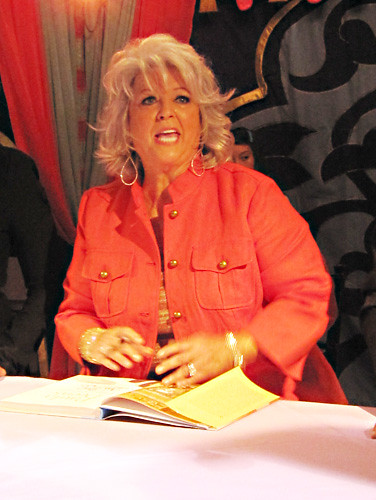
2. **Paula Deen’s Racism Scandal**
Paula Deen, the queen of Southern comfort food and a seemingly beloved television personality, saw her empire crumble in 2013 amidst a firestorm of racial controversy. The scandal erupted during a deposition for a lawsuit, where Deen admitted under oath to having used the N-word in the past and to making racist jokes. This revelation sent shockwaves through her fanbase and the industry, leading to widespread disappointment and outrage.
The initial attempts to address the issue were fraught with missteps, including an interview with Matt Lauer that, for many, only deepened the perception of insincerity. During this interview, the context explicitly states that “she never gets around to an actual apology.” Instead of taking full responsibility, Deen engaged in classic deflection tactics: she minimized her past actions by saying “it was many years ago,” shifted blame by discussing how “younger Black people use the N-Word amongst themselves,” and defiantly insisted that she was “not a racist.” Her memorable, if ill-advised, declaration, “I is what I is,” only served to solidify public perception that she was unwilling to genuinely confront her past.
Following the disastrous interview, Deen released a tearful video statement, a more traditional format for celebrity apologies. In this video, she “begged for forgiveness and claimed that her actions did not reflect her true character.” However, by this point, the damage was largely done, and her efforts were “widely criticized as being insincere.” Many viewers felt her tears were performative, viewing the apology as a desperate attempt to save her brand rather than a heartfelt expression of remorse.
The backlash was swift and severe, leading to a cascade of consequences that demonstrated the immense power of public opinion. Major sponsors and partners, including the Food Network, swiftly severed ties with her, resulting in millions of dollars in lost revenue and a dramatic fall from grace. Paula Deen’s saga serves as a stark cautionary tale about the importance of authentic accountability and the high cost of failing to deliver a genuinely contrite apology in the face of serious allegations.
Read more about: Beyond the Headlines: Unpacking the Most Shocking Public Meltdowns That Forced A-List Celebrities to Take a Hiatus

3. **Johnny Depp and Amber Heard Apologize to Australia**
Back on April 18, 2016, a rather peculiar apology video emerged featuring Johnny Depp and Amber Heard. This minute-long clip saw the then-married couple apologizing to Australia for illegally bringing their dogs, Pistol and Boo, into the country the previous year. What seemed like a simple, if somewhat absurd, incident at the time has been “made retroactively fascinating by their protracted divorce and court case,” adding a layer of ironic theatricality to their words.
The video itself was immediately dubbed a classic example of a “hostage video,” a description that perfectly captures its palpable awkwardness. Both Depp and Heard were visibly uncomfortable, clearly “reading their statements off an off-screen prompter.” Their expressions were strained, their delivery stilted, and the forced nature of the situation was undeniable. The entire performance lacked any genuine warmth or spontaneity, making it difficult for viewers to connect with their supposed remorse.
Further contributing to the tone of “insincerity” was the oddly formal language used throughout the apology. The inclusion of phrases like “biodiversity” felt completely out of place for what was essentially a pet smuggling snafu, making the apology sound less like a personal statement and more like a bureaucratic press release. It was a stark reminder that even Hollywood’s biggest stars can struggle with the art of a believable apology when the words aren’t truly their own.
In hindsight, this bizarre apology serves as a fascinating precursor to the public spectacle of their later legal battles. The “hostage video” vibe and forced language became part of their public narrative, showcasing how quickly an attempt at damage control can backfire, especially when the performance overshadows any hope of genuine contrition. It’s a powerful lesson in how an apology, when not authentically delivered, can ironically draw more attention to its fakeness than to the mistake it purports to address.
Read more about: Beyond the Red Carpet: 12 Actors Who Might Be More Problematic Than You Think
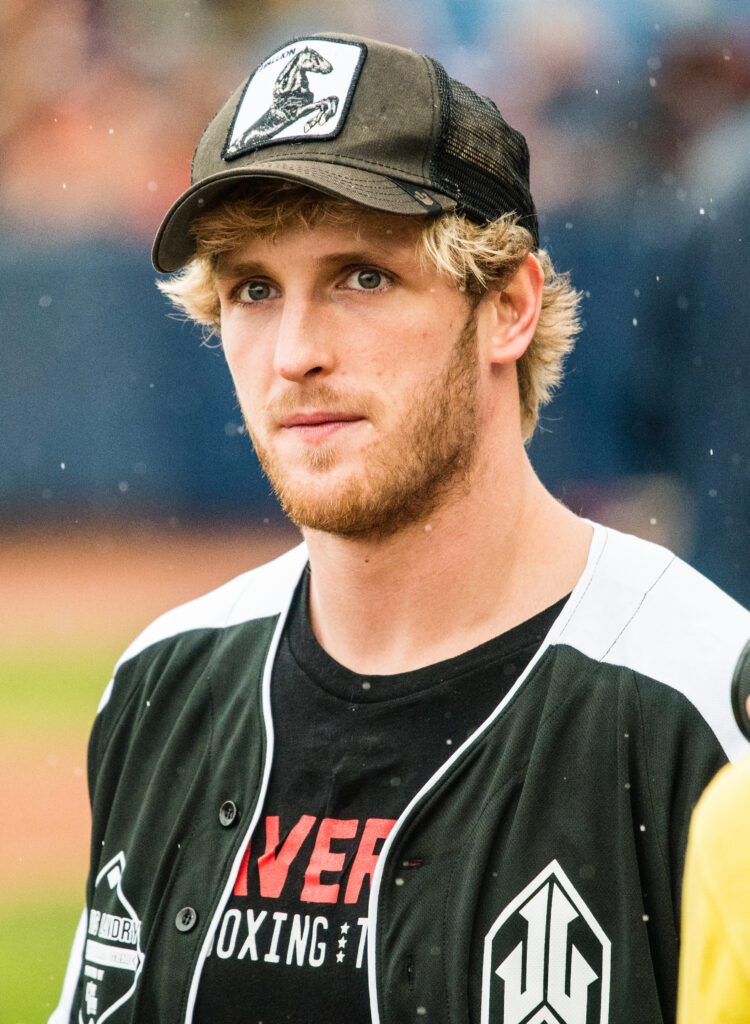
4. **Logan Paul Apologizes For the Suicide Forest Video**
Logan Paul, a polarizing figure in the YouTube community, faced an unprecedented wave of condemnation following his deeply misguided actions in Japan. On January 2, 2018, Paul uploaded a video where he and his crew filmed footage and “goofed around” in the Aokigahara Forest, a notorious location known as the “Suicide Forest” due to the number of people who visit to end their lives. The situation took a horrific turn when Paul “found an actual dead body.”
Shockingly, instead of turning off the cameras, Paul “kept filming, even focusing on the body and making jokes.” This appalling decision, compounded by the fact that he then “uploaded it to his stream, where it was watched by his audience, many of whom were minors,” sparked immediate and widespread outrage. The internet erupted in a torrent of criticism, demanding accountability for such a profound lapse in judgment and basic human decency.
In the wake of this catastrophic error, Paul released an apology video titled “So Sorry.” However, the public reaction was overwhelmingly negative. Many viewers felt that Paul “could not make any apology appear sincere and heartfelt.” Instead, it “felt like a staged attempt to save ‘the brand'”; a transparent effort to mitigate career damage rather than express genuine remorse. For a vast number of people, this video inadvertently showed “the real Logan Paul for the first time,” revealing a shocking insensitivity.
The apology was also criticized for being “painfully brief,” with many believing the gravity of the situation warranted more than a simple “sorry about that.” His attempt to frame his actions as a way “to raise awareness” was widely rejected, perceived as a hollow justification. The video accumulated “more than 2.3 million dislikes,” cementing its place as one of the most reviled apologies in YouTube history. This incident stands as a stark reminder of the immense responsibility that comes with having a massive platform, and the catastrophic consequences of abusing it.
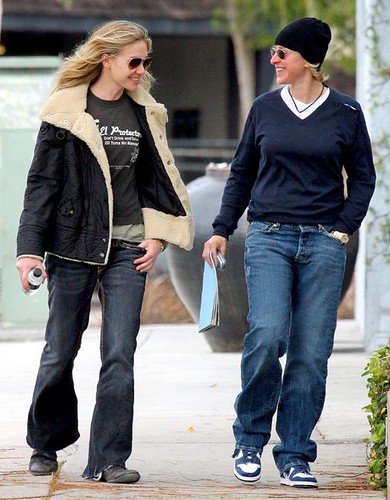
5. **Ellen DeGeneres Apologizes for Abusing Her Staff**
When accusations of fostering a toxic workplace environment began to surface against Ellen DeGeneres, a figure long celebrated for her ‘be kind’ mantra, the internet was ablaze. The beloved talk show host found herself in a deep reputational crisis, with former and current staff members alleging mistreatment, racism, and intimidation behind the scenes of her cheerful daytime program. The pressure for a public apology was immense, and all eyes were on how she would address such a glaring contradiction to her public persona.
On September 21, 2020, Ellen kicked off the 18th season of her show with what was intended to be her moment of reckoning. However, instead of a straightforward, contrite apology, she chose to deliver it as an opening monologue, sprinkling “awkward jokes in between promises to own her mistakes and take responsibility.” This stylistic choice was immediately questioned, with many observers noting that “If you’re being accused of fostering a toxic workplace, it’s best to drop the standup routine.” The juxtaposition of lighthearted humor with serious allegations of misconduct struck many as tone-deaf and further undermined her credibility.
The apology was quickly blasted by those it was meant to appease. “Both current and former Ellen staffers blasted the apology in interviews with BuzzFeed,” expressing deep disappointment. Their core complaint was that DeGeneres “minimized her wrongdoing and made their suffering all about her,” turning the focus inward rather than genuinely acknowledging the pain and experiences of her employees. This self-referential approach only intensified the criticism, suggesting that the apology was more about preserving her public image than truly taking responsibility.
Ultimately, Ellen DeGeneres’ apology became a textbook example of how not to address a workplace scandal. By prioritizing her comedic persona and seemingly deflecting genuine accountability, she alienated the very people she needed to win over. The incident highlighted the stark difference between a carefully crafted public image and the realities of a celebrity’s professional environment, proving that sincerity cannot be masked by a smile and a few awkward jokes when serious accusations are on the table.
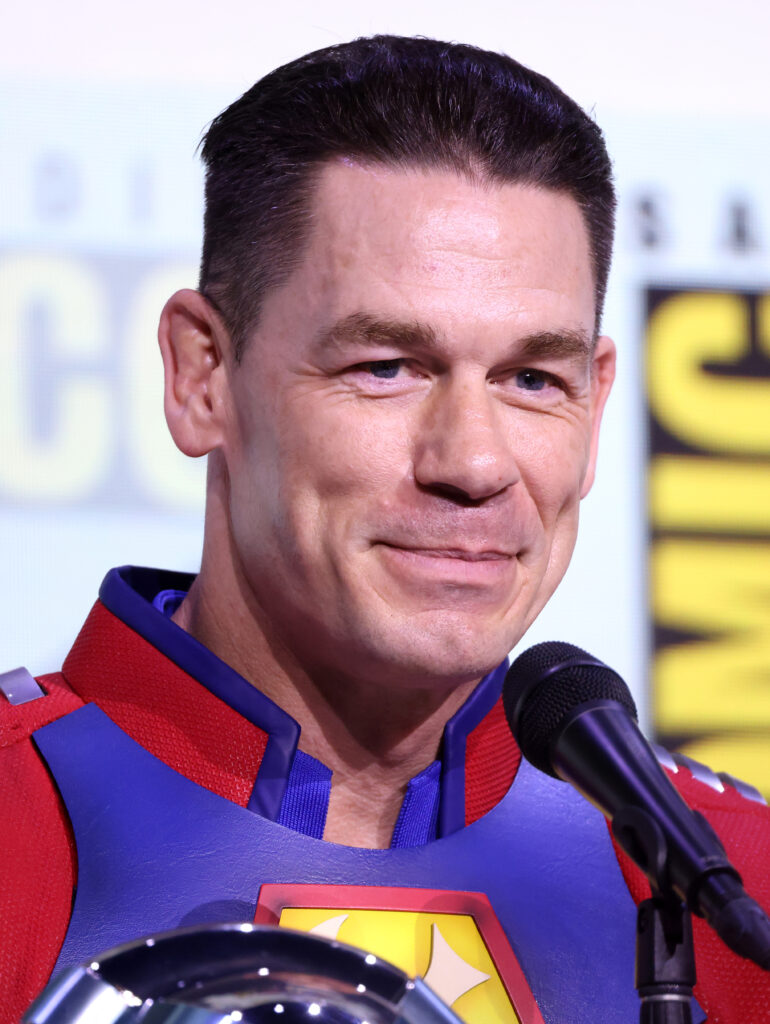
6. **John Cena Apologizes for Calling Taiwan a Country**
John Cena, the wrestling legend turned Hollywood action star, usually embodies an all-American hero, championing values like hustle, loyalty, and respect. However, in 2021, he found himself in a geopolitical tight spot that led to an apology video sparking considerable debate. The controversy arose when Cena, during a promotional interview for *Fast & Furious 9*, “misspoke by calling Taiwan a country” to a Taiwanese newscaster.
This seemingly innocuous comment quickly became a major issue because, “according to China, Taiwan is a rogue province,” not an independent country. Given the immense importance of the Chinese market to Hollywood blockbusters, Cena’s remark instantly created a diplomatic and economic headache for him and the film’s studio. The pressure was on to rectify the situation, and quickly.
Cena responded by posting a video on Weibo, a popular Chinese social media platform, where he delivered his apology. In the video, he expressed profound regret to the Chinese people, speaking in Mandarin and emphasizing his love and respect for China. However, many viewers, particularly in the West, found his apology to be delivered “with an uncomfortable amount of servility.” His demeanor and choice of words led to criticism that he was excessively deferential, seemingly prioritizing commercial interests over democratic principles.
The incident ignited a broader conversation about Hollywood’s relationship with China and the ethical compromises celebrities sometimes make to access lucrative foreign markets. Cena’s apology, while seemingly effective in appeasing Chinese audiences, alienated a portion of his Western fanbase and sparked discussions about free speech and political correctness. It underscored the incredibly delicate tightrope celebrities must walk in a globally interconnected world, where a single misstep can have far-reaching political and public relations consequences.
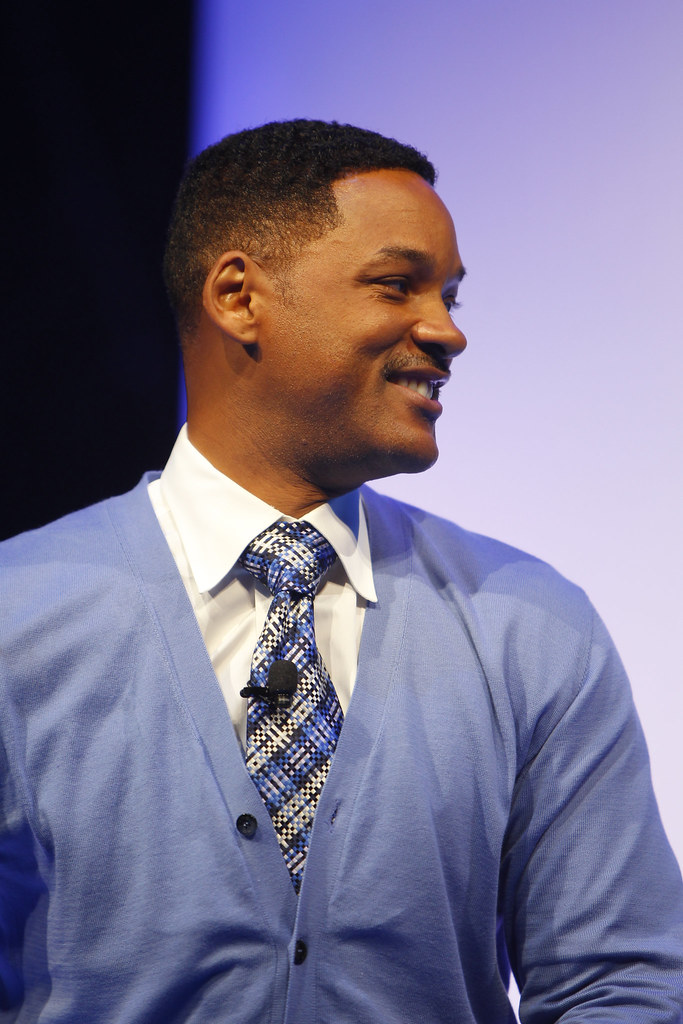
7. **Will Smith Apologizes for Slapping Chris Rock**
The slap heard ’round the world at the 2022 Academy Awards left everyone stunned, and the fallout for Will Smith was immediate and immense. Months after the infamous incident where he walked onto the Oscar stage and slapped Chris Rock, Smith released a highly anticipated apology video on July 29, 2022. The world watched, eager to see how the usually composed and charismatic actor would address one of the most shocking moments in live television history.
In the video, Smith expressed profound remorse “to everyone, including Chris Rock, for his behavior on the eve of the Academy Awards.” He tackled pre-submitted questions, attempting to provide clarity and context for his actions. However, the delivery itself became a focal point of criticism, as it “felt bizarrely rehearsed and unrehearsed at the same time.” On one hand, viewers observed him “struggle to read the predetermined questions that he answered in the video, and read his responses like a robot.” This awkwardness undercut any potential for genuine, spontaneous emotion.
Conversely, the visual presentation of the apology was meticulously crafted, with “the visual presentation was perfectly manicured with beiges and earth tones.” This stark contrast between the stilted delivery and the polished aesthetics created a disconnect, making it difficult for the apology to land effectively. The overall impression for many was that “none of it came off as especially sincere,” leaving audiences questioning the depth of his contrition and the authenticity of his performance.
Smith’s apology video highlighted the immense challenge of apologizing for such a public and impactful transgression, especially for a seasoned actor. The blend of apparent struggle and over-production led to an apology that, for many, felt more like a calculated public relations exercise than a heartfelt outpouring of regret. It remains a powerful example of how even the most carefully constructed celebrity apology can fall short when it fails to convey an undeniable sense of genuine sincerity and accountability.
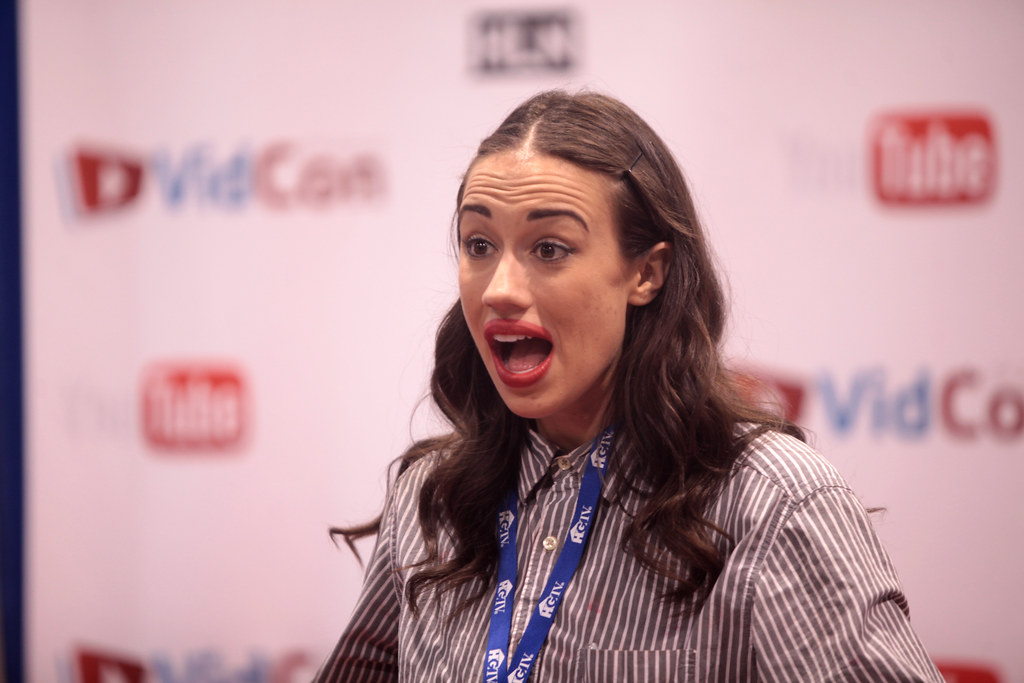
8. **Colleen Ballinger Apologizes Via Ukulele**
YouTube apologies can take perplexing forms, and Colleen Ballinger’s “apology” video in June 2023 stands out. Ballinger, known for her Miranda Sings persona, faced a severe crisis after *Rolling Stone* exposed alleged exploitative and “grooming behavior” toward her young fans. Widespread outrage demanded a serious response from the creator.
However, Ballinger opted for a highly unconventional approach. She released a 10-minute video, delivering her “apology” in song, accompanied by a ukulele. This choice was met with disbelief and anger. Many viewers found the lighthearted, childlike presentation of serious allegations inappropriate and tone-deaf, undermining the gravity of the accusations.
The “rambling” and “insufferably twee” song seemed to “chalk it all up to forgivable mistakes.” Critics felt she was minimizing profound harm. The apology was perceived not as sincere remorse, but as a defensive, self-serving attempt to deflect blame and avoid true accountability for the alleged “exploitative, grooming behavior.”
The ukulele apology became a negative cultural touchstone, dubbed “the cultural low point of 2023.” It highlighted how an apology, not delivered with appropriate seriousness, can spectacularly backfire. This deepened public distrust and further damaged her tarnished reputation.
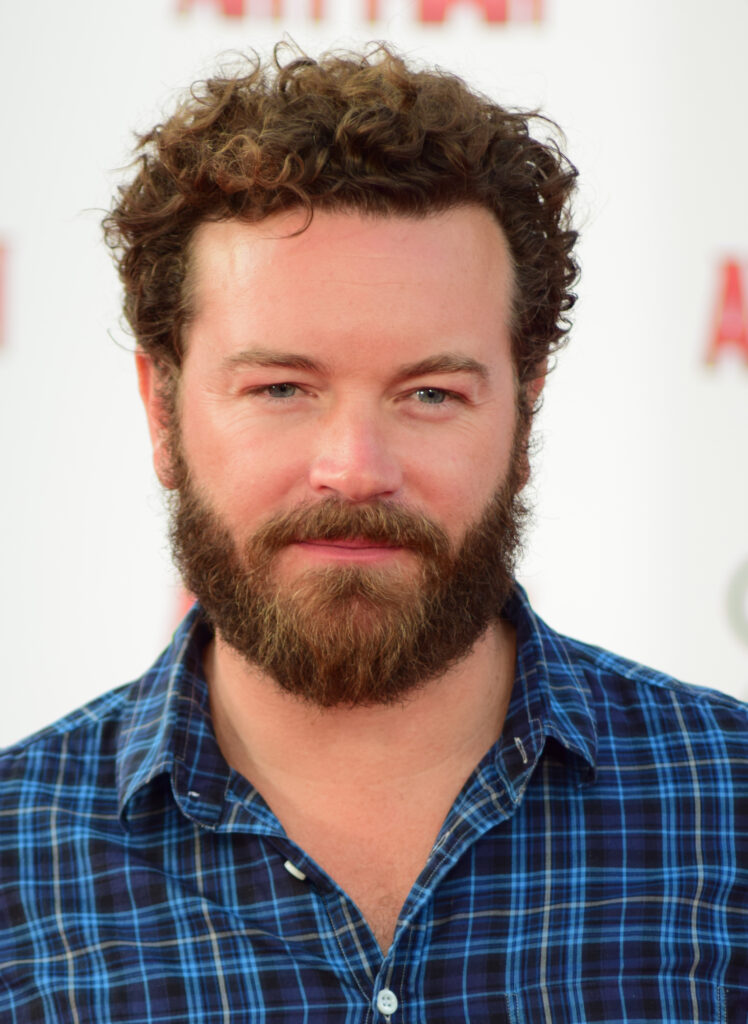
9. **Mila Kunis and Ashton Kutcher Apologize for Supporting Danny Masterson**
The conviction of actor Danny Masterson on rape charges sent shockwaves, impacting his former *That ’70s Show* co-stars, Mila Kunis and Ashton Kutcher. The couple faced significant public backlash after writing letters of support for Masterson to the judge, praising his character. This act ignited a firestorm, forcing them into a public apology video.
Their apology was immediately likened to “another hostage video.” Mila Kunis appeared visibly uncomfortable, looking as if “she’d rather be anywhere else.” Both actors delivered statements with profound awkwardness, struggling to convey genuine sincerity while addressing public outrage regarding their actions.
The apology’s content further fueled perceptions of insincerity. It featured “the classic non-apology, ‘sorry if you were offended’ sort of sentiment.” Critics viewed this as deflection, not earnest acceptance of responsibility. This phrasing, seen as apologizing for the *perception* of harm rather than the harm itself, rarely resonates positively with an angry public, especially on issues as serious as ual violence.
Adding to the complexity, the actors “concluded by reiterating their dedication to victims of ual violence.” Yet, this felt hollow after Kutcher ” subsequently stepped down as board chair of Thorn,” his anti-child sex abuse organization. This departure solidified public suspicion that their remorse was performative, a calculated public relations move rather than deeply felt regret.

10. **Drew Barrymore Apologizes for Being a Scab**
Drew Barrymore, usually known for her sunny persona, found herself in significant controversy during the 2023 Hollywood strikes. While writers and actors picketed for fair wages, Barrymore announced her talk show would resume production. This decision was met with immediate, fierce criticism from unions and supporters, accusing her of crossing the picket line and acting as a “scab.”
The backlash was swift and intense, seen by many as a betrayal of fellow artists and collective bargaining principles. Recognizing the severe damage to her public image, Barrymore issued a public apology. Her apology aimed to address the outrage and explain her decision, attempting to mend the rift created within the industry.
However, the apology itself often drew further scrutiny. It highlighted the delicate balance celebrities must strike between business interests and solidarity with labor movements. In an era demanding clear support for social causes, any perceived transgression can quickly lead to accusations of hypocrisy, irrespective of intentions.
Barrymore’s situation underscored the complexities high-profile individuals face during contentious labor disputes. Even with a history of advocacy, a single misstep can erode years of goodwill. Her apology became a focal point in the broader conversation about celebrity responsibilities, illustrating the vital need to convey genuine empathy and solidarity when atoning for perceived errors.
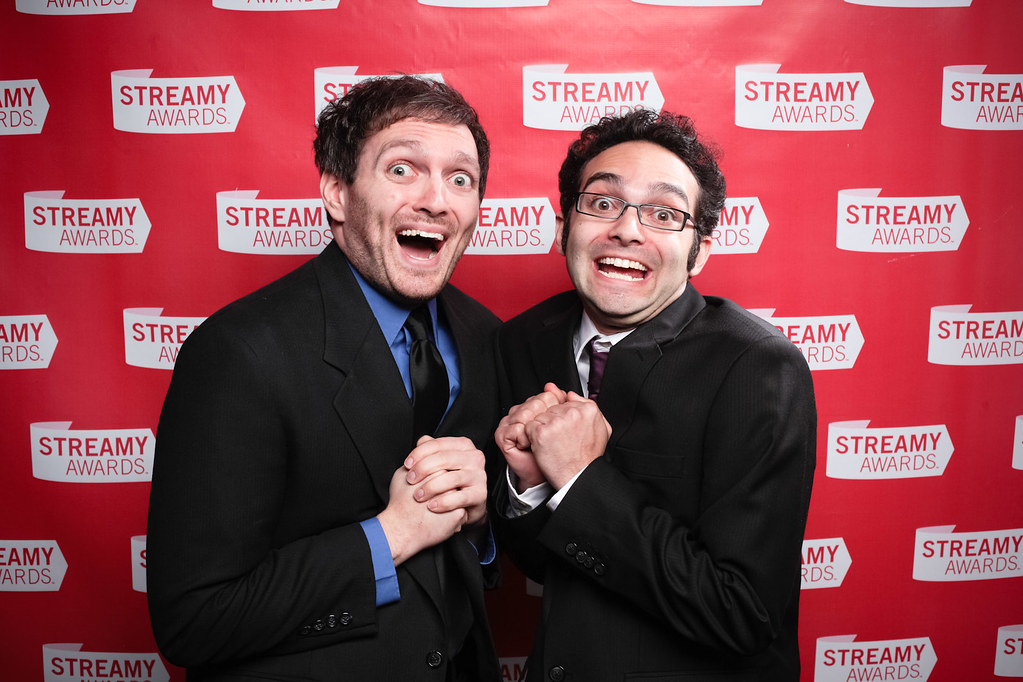
11. **The Fine Brothers (Attempted Trademark of “React”)**
The Fine Brothers, founders of Fine Brothers Entertainment and pioneers of the popular “React” series on YouTube, stumbled into a major public relations crisis. They attempted to trademark the common term “react,” sparking outrage across the global YouTube community. This move to privatize a widely used term was seen as an overreach and an attack on the internet’s collaborative spirit.
Initially, the Fine Brothers tried to quell anger with what was perceived as a condescending explanation of their business acumen. This defensive stance exacerbated the situation, making the public feel dismissed and fueling backlash. Their initial response lacked empathy, further eroding trust.
As the controversy escalated, the Fine Brothers were forced to issue a “full-blown apology.” They announced they were “rescinding their trademark attempt,” acknowledging public concerns. However, the damage to their brand and reputation was already done. Simply reversing course was not enough to undo the deep sense of betrayal.
The fallout was severe. They “lost tons of subscribers,” a clear sign of public disapproval. The internet “reacted negatively to the video,” with many sarcastically asking if they “could react to things again,” highlighting deep resentment. This incident became a cautionary tale about intellectual property, proving a powerful YouTube empire can be brought low by an ill-conceived decision and a poorly handled response.
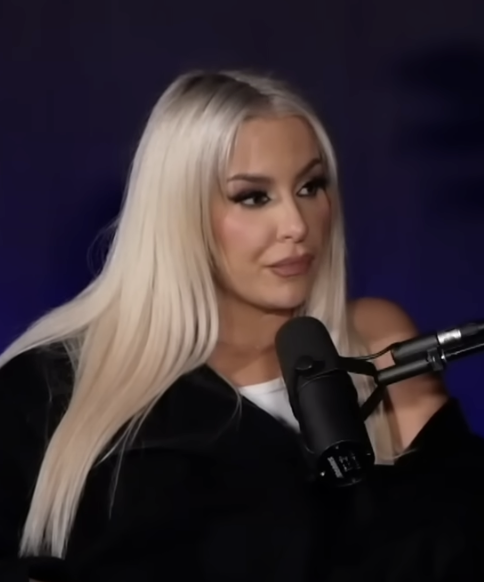
12. **Tana Mongeau (TanaCon Disaster)**
In the chaotic world of influencer events, few disasters rival TanaCon, organized by YouTuber Tana Mongeau in 2018. Mongeau spectacularly failed to plan for the massive event. Thousands of “thirsty and hungry people” were left stranded “out in the hot sun” due to severely “limited capacity,” leading to widespread chaos and safety concerns.
The convention’s collapse demanded a significant public response. Mongeau delivered what was mockingly dubbed “The Godfather” of apology videos – a sprawling, “over an hour in length!” This excessive runtime was deemed “absolutely ridiculous” by viewers, who expected a concise explanation, not an epic saga. The length highlighted a lack of focus, crucial for effective apologies.
What made the apology even less sincere was Mongeau’s consistent tendency to “keep placing the blame on other people.” Instead of taking full responsibility for the planning failures, she offered excuses and pointed fingers. This is a cardinal sin in genuine apologies, further alienating her audience who expected accountability.
The video quickly accumulated “over 39,000 dislikes,” signaling widespread public disapproval. TanaCon, with its infamous apology video, rapidly “faded into internet infamy,” becoming a textbook example of how not to organize a major event and how not to apologize for its catastrophic failure. It served as a stark lesson for influencers on owning one’s mistakes.
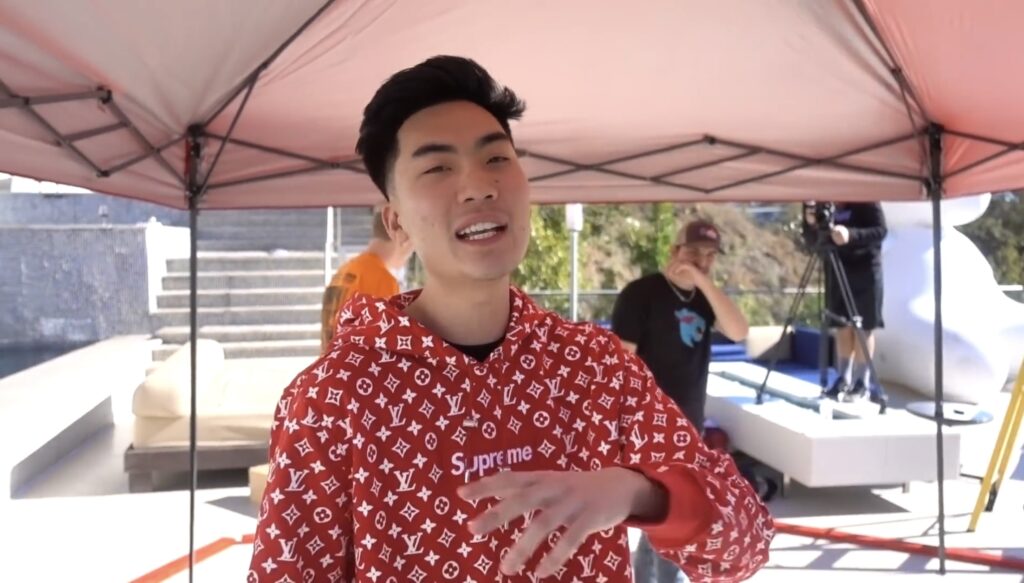
13. **RiceGum (MysteryBrand Scam Promotion)**
Online influencer RiceGum found himself in deep controversy in early 2019, accused of promoting a scam website called MysteryBrand. This site, promising high-value items through mystery boxes but criticized for deceptive practices, put RiceGum in a compromising position with his audience. The backlash was immediate, as viewers felt misled and exploited by the promotion.
When confronted, RiceGum initially responded with the classic deflection: he “pulled the whole ‘Well, other people were doing it too!’ excuse.” This attempt to minimize wrongdoing by pointing to others only worsened his public image. It signaled a lack of personal accountability and an unwillingness to acknowledge the unique trust he held with his followers.
Attempting to “make amends,” RiceGum launched an ill-conceived “apology” strategy: he “attempted to buy everyone off with Amazon gift cards.” This gesture backfired spectacularly when the gift cards “were expired.” This egregious error transformed a questionable apology into an outright insult, confirming his efforts were not genuine but a clumsy attempt to mitigate damage.
“Needless to say, people were pissed,” and “RiceGum’s failed ‘apology’ became YouTube legend” for all the wrong reasons. The incident became a prime example of how a poorly executed apology can fail to resolve a crisis and actively create more controversy, digging the subject “into even deeper holes.” It highlighted the vital importance of sincerity and genuine concern for the audience when atoning for promotional missteps.

14. **Keemstar (False Pedophilia Accusation)**
Keemstar, the controversial host of DramaAlert, has seen his share of online drama, but one incident in January 2016 crossed a significant line. He publicly accused 62-year-old Twitch streamer rsgloryandgold of being a pedophile—an “incredibly serious accusation” that lacked evidence and resulted in the innocent man receiving “death threats.” The gravity of such a false claim demanded a profound and genuine apology.
When it became clear the accused man was “completely innocent,” Keemstar took to YouTube to apologize. However, his apology “did not go over well.” The video garnered “over 152,000 dislikes compared to just 50,000 likes.” This stark imbalance indicated the public found his apology deeply unsatisfactory and lacking in genuine remorse for the severe harm caused.
Many commenters expressed being “sick of Keemstar’s attitude, relentless controversy, and inauthentic apologies.” This sentiment suggested a pattern where Keemstar’s apologies were perceived as superficial, mere formalities to escape consequences rather than sincere regret. Public patience had worn thin, especially when “silly YouTube drama” escalated to such a damaging and baseless accusation.
The incident served as a potent reminder that while online creators often engage in provocative content, there are limits. False accusations, particularly those with severe real-world consequences, demand absolute sincerity. Keemstar’s apology became a significant example of how a track record of perceived insincerity can cripple the effectiveness of any subsequent attempts at contrition.

15. **TmarTn (CS:GO Gambling Site Scandal)**
In 2016, Trevor Martin, known as TmarTn within the YouTube gaming community, faced a monumental scandal exposing a significant conflict of interest. It was revealed that TmarTn was not merely promoting a *Counter-Strike: Global Offensive* (CS:GO) gambling website; he was, in fact, “the owner” of it. This revelation created a massive breach of trust, as he secretly profited from the platform he endorsed to his young fanbase.
The ensuing apology video was so poorly executed that the context labels it “perhaps the worst apology video of all time,” playing “more like an ‘SNL’ parody than a legitimate effort.” It began with highly questionable tactics, such as the “whole ‘I’ll talk to my cute dog and hope the audience sympathizes’ bit,” an obvious ploy to garner unearned sympathy and setting an immediate tone of insincerity.
Further undermining credibility, the video featured “the exaggerated ‘here we go’ sigh” and visuals of “a huge mansion and conveniently-framed truck that flaunts his wealth.” These elements struck viewers as ostentatious and tone-deaf, conveying a distinct impression of a celebrity more concerned with image and possessions than genuinely addressing wrongdoing or harm caused.
Critically, the apology was deemed “insincere,” as it shockingly attempted to “place the blame on the viewers instead of himself,” asking, “Yeah, why didn’t we know about this, guys!? Gosh!” This audacious deflection cemented the video’s status as a catastrophic failure. TmarTn’s apology became a notorious example of damage control gone wrong, illustrating how transparent attempts to manipulate, deflect, and self-aggrandize during a crisis only amplify public outrage and irrevocably tarnish a reputation.
From cringe-worthy deflections to deeply unsettling performances, these celebrity apology videos offer a fascinating, sometimes horrifying, glimpse into the intricate dance between public figures and accountability. They serve as potent reminders that in our hyper-connected world, every word and gesture is magnified, scrutinized, and often, recorded for posterity. Whether genuine or glaringly disingenuous, these moments shape careers, influence public perception, and continue to fuel our collective fascination with the stars who fall from grace, and how—or if—they ever truly get back up. The art of the apology, especially when the cameras are rolling, is clearly one of the hardest acts to pull off, leaving us all to wonder: what’s real, and what’s just another performance?

